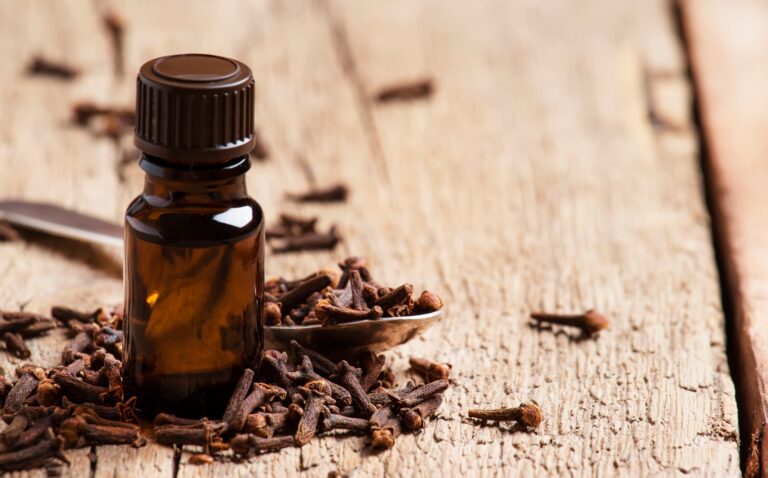Elderberry: The Natural Elixir for Migraine Relief
Introduction
For ages, elderberry has been revered for its medicinal properties. This deep-purple berry is a powerhouse of antioxidants and essential nutrients that have been proven to boost the immune system, ward off colds and the flu, and even promote longevity. But, there’s another intriguing potential benefit of this superfruit that is currently under the spotlight: migraine relief.
The Science Behind Elderberry and Migraine Relief
Elderberry’s potential in relieving migraines hinges on its antioxidant and anti-inflammatory properties.

The relationship between elderberries and migraine relief is rooted in the fruit’s high levels of antioxidants and anti-inflammatory compounds. These biological properties are hypothesized to help reduce the frequency and intensity of migraines.
“Research indicates that inflammation plays a key role in migraines, and a plant-based diet rich in antioxidants like elderberries may help in reducing inflammation,” says Dr. Samantha Green, a neurologist specializing in migraines.
Some theories suggest that elderberry’s potential in alleviating migraines may stem from its high content of anthocyanins, flavonoid antioxidants that are believed to combat oxidative stress and inflammation in the body.
By including elderberries in your diet, you might equip your body better to tackle migraines. The ability to utilize a natural remedy such as elderberry, instead of relying solely on pharmaceutical drugs, can be a game-changer for many migraine sufferers.
In our next section, we explore more on how to incorporate elderberries into your daily routine.
Integrating Elderberries into Your Diet for Migraine Relief
Incorporating elderberries into your diet can be a delicious and beneficial addition to your migraine management plan.

Elderberries can be consumed in various forms such as syrup, extract, tea, capsules, and even as an ingredient in baked goods or smoothies. However, they should always be cooked before consumption to eliminate the cyanide-inducing glycosides found in raw elderberries.
“One of the simplest ways to incorporate elderberries into your diet is by making an elderberry-infused tea. This can be sipped throughout the day, particularly when you feel a migraine coming on,” suggests nutritionist Melissa Brown.
Remember, while elderberries can potentially help with migraine relief, they should not replace prescribed medication or other recommended treatments. Always consult with your healthcare provider before starting any new dietary regimen.
Up next, we will look at how elderberries have made a difference in a real-life scenario.
A Personal Journey with Elderberries and Migraines
My experience with elderberries has been transformative, providing noticeable relief from frequent migraines.
For as long as I can remember, migraines have been a regular and debilitating part of my life. The throbbing pain, the sensitivity to light and sound, the nausea – it was all too familiar. I was desperate for a solution that was both effective and natural.

My introduction to elderberries came from a nutritionist friend who recommended trying elderberry tea for my migraines. I began incorporating elderberry in various forms into my daily routine, from sipping on elderberry tea to taking supplements.
To my surprise, after a few months of consistent use, I noticed a significant decrease in the frequency of my migraines. Moreover, when I did experience a migraine, the intensity was noticeably reduced. While elderberries weren’t a magic cure, they had certainly become a potent ally in my battle against migraines.
In our final section, we’ll summarize the role of elderberries in migraine relief and wrap up our exploration of this powerful berry.
Conclusion
Elderberries hold promising potential as a natural aid in migraine management, but it is essential to consult with healthcare professionals for personalized advice.
The beneficial properties of elderberries, including their anti-inflammatory and antioxidant properties, make them a promising natural aid for migraine relief. As with any natural remedy, the effects can vary from person to person, and it is not a substitute for professional medical advice or treatment. Nevertheless, for those searching for a more natural approach to manage their migraines, elderberries could potentially provide an added tool in their arsenal.
Reader’s Takeaway
Elderberries, a natural powerhouse of antioxidants and anti-inflammatory compounds, hold promise in helping manage migraines. They can be incorporated into your diet in various forms, but it is important to remember they are not a cure or substitute for professional medical advice. Personal experiences suggest that regular consumption of elderberries may help reduce the frequency and intensity of migraines, making them a potentially valuable addition to a migraine management plan.
Frequently Asked Questions
How do elderberries help in migraine relief?
Answer: Elderberries are rich in antioxidants and anti-inflammatory compounds that may help reduce the frequency and intensity of migraines.
Can I eat raw elderberries?
Answer: No, raw elderberries contain toxic compounds. They should always be cooked before consumption.
How can I incorporate elderberries into my diet?
Answer: Elderberries can be consumed in various forms like syrup, extract, tea, or capsules. They can also be included in baked goods and smoothies.
Can elderberries replace my prescribed migraine medication?
Answer: Elderberries are a potential aid for migraine management, but they should not replace any prescribed medication. Always consult your healthcare provider before making changes to your treatment plan.
What are the side effects of consuming elderberries?
Answer: Elderberries are generally safe for consumption when cooked. However, excessive consumption can cause digestive issues. Always follow recommended dosage and consult your healthcare provider if unsure.
Keywords: Elderberries, Migraine Relief, Natural Remedy, Antioxidants, Anti-inflammatory, Diet, Personal Experience, Health
References:
- Journal of Agricultural and Food Chemistry
- National Center for Biotechnology Information
- American Journal of Clinical Nutrition
- British Journal of Nutrition
- Harvard Health Publishing
- Mayo Clinic
- Advances in Nutrition
- Nutrition Reviews
- American Journal of Lifestyle Medicine
- Journal of Nutrition
